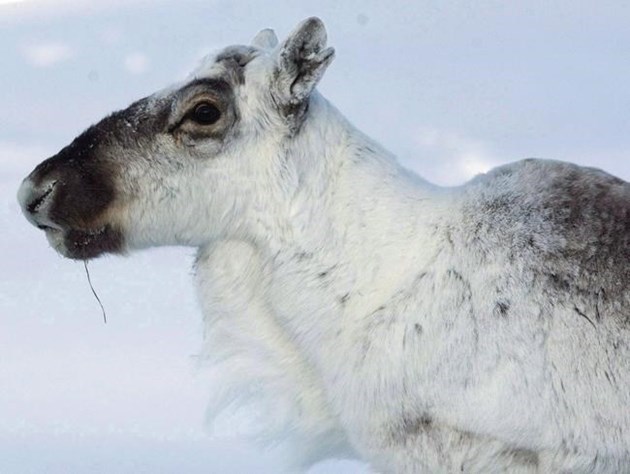An Environment Canada report says that despite much talk on preserving caribou habitat, little progress has been made to close gaps in the protection of the threatened species.
The agency says not much has changed since a coast-to-coast survey in April.
"Despite the progress being made, the gaps in protection, as described in the first progress report, remain," says the report issued Friday.
"Additional efforts, including those noted in this report, are needed to reverse the loss of critical habitat and declines in boreal caribou populations."
The department is required under the Species At Risk Act to assess provincial and territorial efforts to assist the recovery of caribou populations.
In April, Environment Canada found significant problems. In every province, agencies that issue permits for forestry or energy development aren't required to conform to the federal Species At Risk Act.
That earlier report also noted that little conservation is taking place on the ground. Measures in almost every case are still being planned or drafted.
That situation continues. The new report lists dozens of ongoing negotiations, draft plans and provincial promises to restore caribou populations to sustainable levels, but there are few fully implemented protected areas.
Planning is good, said Florence Daviet of the Canadian Parks and Wilderness Society. Action would be better.
"They were supposed to be doing this planning and talking since 2012," she said. "They've had a lot of time to talk."
Barry Robinson, a lawyer with the group Ecojustice, pointed out that Friday's report was itself almost two months overdue. So are many of the protection measures that should be in place by now, he said.
"We still don't have any range plans in Alberta, which were to have been done by October 2017."
Many governments, including Alberta, have announced ambitious plans for new protected areas. But almost all remain in draft form or remain unimplemented, he said.
"The big gaps are still there."
Caroline Theriault, an Environment Canada spokeswoman, said the report shows many steps have been taken across the country to support caribou recovery.
"Since the last report was published in April, provinces and territories have made some progress on protection plans and on the ground recovery efforts," she said in an emailed statement. "We recognize that more needs to be done, and we are already taking action."
The latest assessment of woodland caribou suggest that 81 per cent of Canada's herds are in decline. Loss of another one-third of the population is expected "in the near term."
The main threat to their numbers is alteration of habitat, which reduces a herd's productivity and allows access by predators.
Caribou conservation is often seen to be in direct conflict with forestry and energy and the jobs they generate. In late March, Alberta delayed its own caribou range plans over economic concerns.
Robinson said that sooner or later, legislation will oblige federal Environment Minister Catherine McKenna to step in and override provincial regulations with an emergency protection order.
"The minister has not done the one thing she is legally required to do, which is to recommend a protection order when the province hasn't protected the required habitat."
— Follow Bob Weber on Twitter at @row1960
-Bob Weber, The Canadian Press



